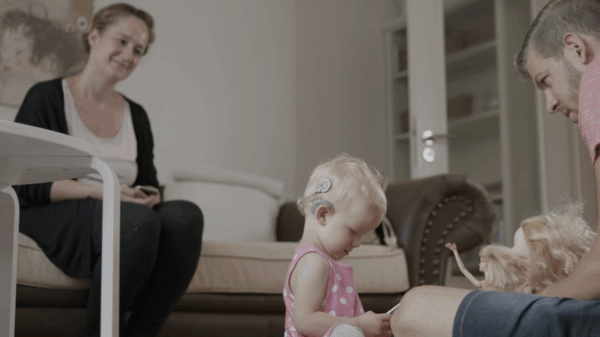You and your child have taken a major step in getting your child a cochlear implant. Now it’s time to help your child adapt to a new way of hearing and help them thrive with their Cochlear™ Nucleus® Nexa™ Sound Processor.
These initial days, weeks, and months can be challenging. Don’t worry—it’s normal to feel overwhelmed. You’re helping your child learn a new way of hearing, not to mention all the information you’re trying to understand.
It can also be very emotional for you all—this is common and it’s important to know you’re not alone. Many others have been in your shoes, feeling just as you do now.
Over the next few weeks and months, you’ll receive resources, tips and advice to help you build your child’s listening and speech skills. But for now, it’s important to play and spend time with your child.
3 strategies to help with your adjustment
1. Get the right information
Everyone responds differently to challenges. Parents say once they understood their child’s hearing needs, they felt more in control and less fearful. Other families feel overwhelmed by information. Either way, make sure your information comes from reputable sources and ask professionals as many questions as you need to. There is no silly question!
2. Your child is more than their hearing loss
While the appointments with hearing health professionals may feel like they are all-consuming and taking up family time. It’s important to remember, your child’s hearing loss is just one part of your precious child—it’s not everything.
3. Look after your own emotional well-being
This is important no matter how old your child is. Sometimes, you’ll feel like family life is going well, other times you’ll feel stressed about your child’s development, or behavior changes. Speak with your doctor or hearing health professional to ask for help, such as counselling or referral to other services. And don’t be afraid to lean on family and friends for support.
Click here for additional resources available to support you and your child.

